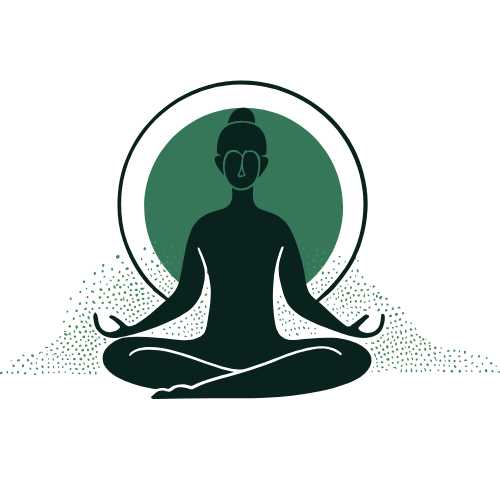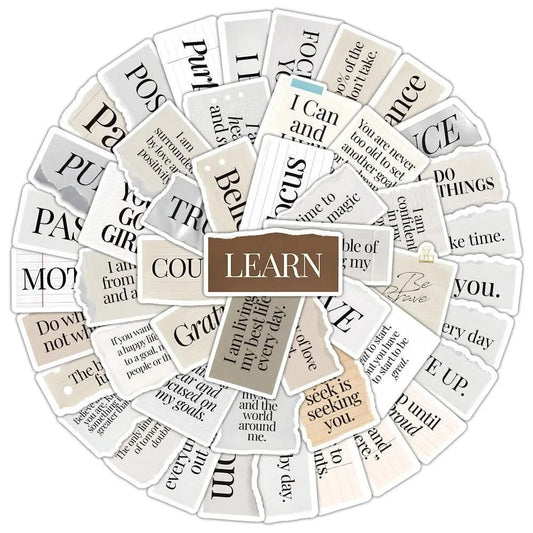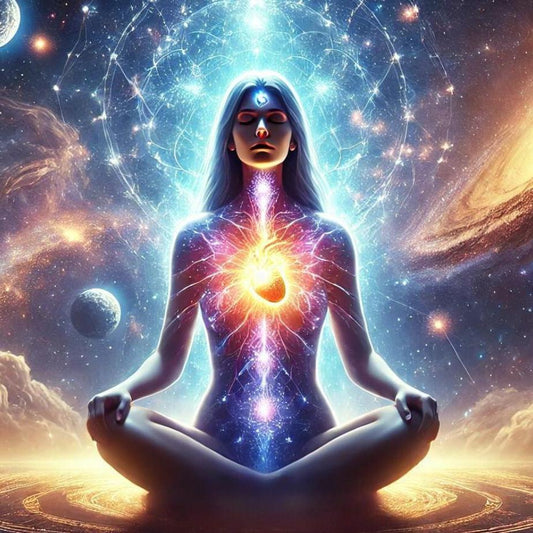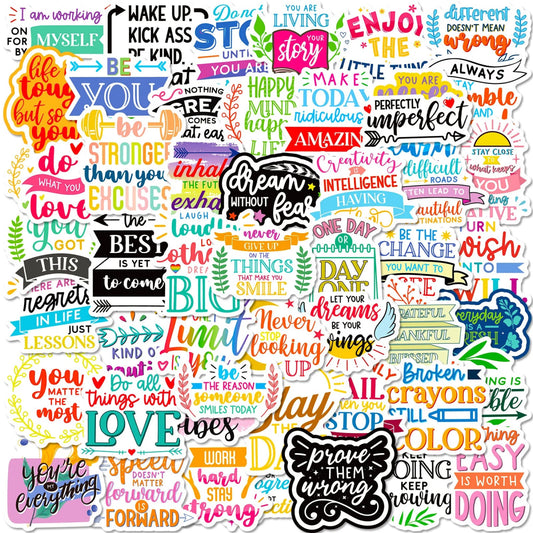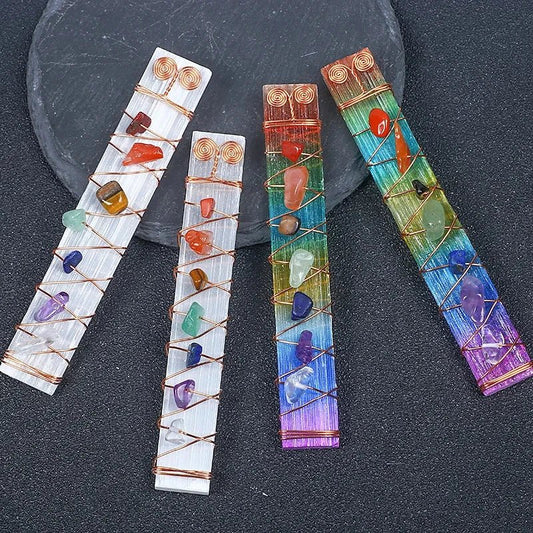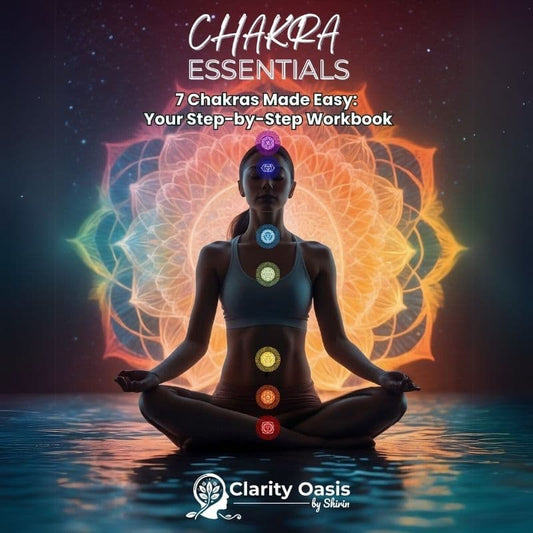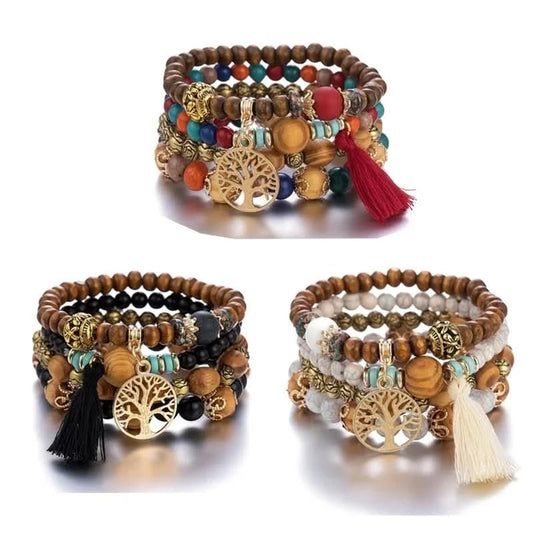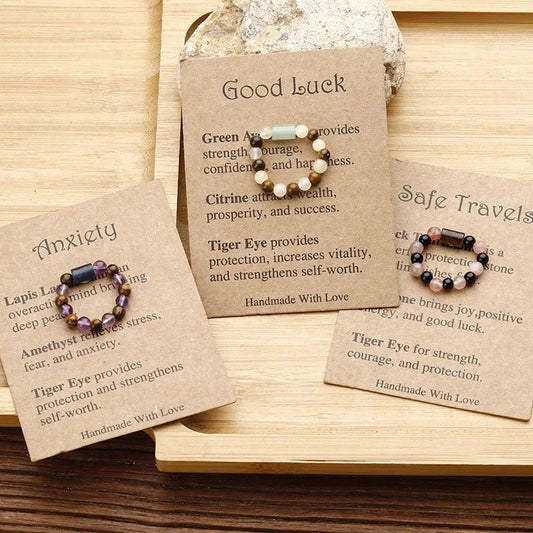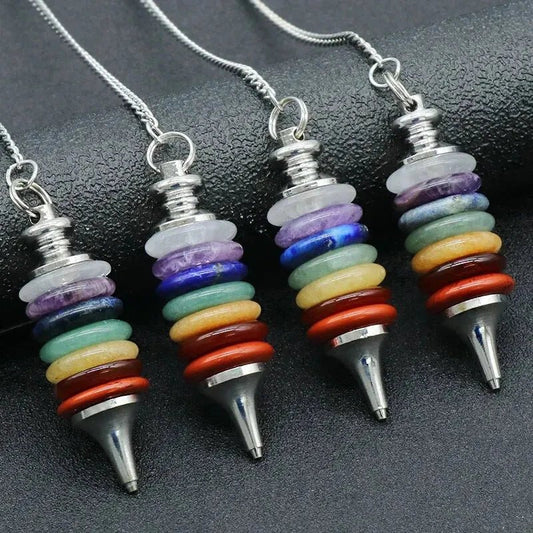
If you’re experiencing emotional isolation, trust issues, or unexplained grief, your heart chakra may be blocked. You might struggle with anxiety, low self-esteem, and a lack of compassion, making it difficult to connect with others. Relationship challenges often stem from a fear of intimacy and creative blockages. These symptoms can create a heavy emotional burden, potentially affecting your physical health.
Empower yourself to heal your heart chakra by practicing mindfulness, open communication, and self-care techniques that align with this energy center. Incorporate deep-breathing exercises and compassion-focused activities into your routine to restore balance. These practices can be your tools for transformation, guiding you toward a more harmonious state of being.
Key Takeaways
- Emotional isolation and difficulty in relationships stem from heart chakra blockage, hindering trust and vulnerability with loved ones.
- Unexplained grief and low self-esteem may manifest as sadness and fatigue, highlighting the need for self-affirmation and emotional healing.
- Anxiety and physical heart discomfort are signs of emotional imbalances; deep-breathing exercises can promote relaxation and emotional regulation.
- A lack of compassion and creative blockage can occur, making mindfulness meditation and expressive arts vital for restoring emotional flow and balancing the Anahata chakra.
- Practicing self-care through heart-healthy foods, regular activity, and relaxation techniques can support overall emotional well-being and chakra alignment.
Sign 1: Emotional Isolation
Emotional isolation often creeps into your life when your heart chakra is imbalanced, leaving you feeling disconnected from those around you. You might notice a growing distance between yourself and loved ones or struggle to connect more emotionally. This disconnection can stem from an inability to express your feelings, making it difficult to share your true self with others.
Incorporating self-care practices into your routine is essential to combat this isolation. Start by creating a space for emotional expression through journaling, art, or talking with a trusted friend. These activities can help you process your feelings and open pathways for connection.
Consider practicing meditation or yoga focused on heart-opening poses, as these can release tension and rejuvenate your heart chakra.
Sign 2: Trust Issues
Trust issues often arise when there is blockage in the heart chakra causing you to question the intentions of those around you. You may find it difficult to open up or let people in, fearing betrayal or rejection. This struggle can hinder your relationships, making emotional healing feel like an uphill battle.
To foster trust-building, it’s crucial to reconnect with your heart chakra. Here are some ways to help you recognize and address trust issues:
| Trust Issue Signs | Healing Strategies |
|---|---|
| Constant suspicion | Practice techniques that promote heart chakra opening to enhance your emotional health and self-reflection |
| Difficulty forming bonds | Engage in open communication and drop judgement |
| Overthinking interactions can be a sign that your heart chakra is not balanced and needs attention. | Meditate on mistrust and restore trust and let go of criticism |
| Fear of vulnerability | Journal your feelings: what are you guarding |
| Past trauma influencing you | Seek professional guidance to release what is holding you back |
If you’re experiencing emotional isolation, trust issues, or unexplained grief, your heart chakra may be blocked. You might struggle with anxiety, low self-esteem, and a lack of compassion, making it difficult to connect with others. Relationship challenges often stem from a fear of intimacy and creative blockages. These symptoms can create a heavy emotional burden, potentially affecting your physical health.
Empower yourself to heal your heart chakra by practicing mindfulness, open communication, and self-care techniques that align with this energy center. Incorporate deep-breathing exercises and compassion-focused activities into your routine to restore balance. These practices can be your tools for transformation, guiding you toward a more harmonious state of being.
Sign 3: Unexplained Grief
Experiencing an emotional weight that feels heavy and hard to pinpoint can lead to unexplained grief. This burden often manifests physically, significantly impacting your energy and overall well-being if emotional blockages are associated with your heart chakra. Recognizing these symptoms is the first step toward healing and restoring balance in this area.
Emotional Weight and Burden
Also known as Anahata, the heart chakra is the green chakra located near the heart and lungs, and it plays a central role in the chakra system. When imbalanced, it can contribute to emotional distress, heart palpitations, or a reduced capacity for compassion. Blockages may restrict the flow of love and empathy, impacting your relationships with others. An imbalanced heart chakra may also influence other chakras, such as the solar plexus, third eye, and crown chakras.
Have you ever felt a heaviness in your chest that’s difficult to explain? This weight often stems from unresolved grief or lingering feelings that are challenging to identify. Such feelings can bring sadness or a sense of burden without an apparent reason, which may feel disheartening. Acknowledging this sensation is crucial for initiating the healing process. Heart-centered meditation and techniques designed to open the heart can promote healing and emotional well-being. Visualize any heaviness in your chest area and express what you feel or sense, experience it lifting away from your body, making room for lightness and joy.
To help release these emotions, try techniques that encourage expression, such as journaling or creating art. Heart chakra guided meditations can be especially beneficial, focusing on opening and balancing this chakra to allow love and compassion to flow more freely.
Physical Manifestations of Grief
Emotional weight from grief can also produce physical symptoms. You might experience unexplained aches, fatigue, or digestive issues as your body processes these feelings. Recognizing these physical symptoms is an essential part of the emotional healing journey.
Here are three common physical signs of grief you may encounter:
- Chronic Fatigue: Feeling drained, possibly indicating a blockage in your sacral or solar plexus chakra.
- Chest Tightness: Emotional burdens may create a sensation of pressure or tightness in the chest, impacting breathing and energy flow.
- Digestive Disturbances: Stress from grief can lead to nausea, digestive upset, or changes in appetite.
To support your healing, incorporate self-care practices such as mindfulness and breathwork. Journaling can help you articulate emotions and track your grief processing. Rely on your support systems, and engage in compassion exercises to nurture yourself and others. Explore various therapeutic modalities; such as : sound healing or breathwork, to find approaches that resonates best with you.
Sign 4: Anxiety and Overwhelm
Feelings of anxiety and overwhelm can often feel like heavy weights pressing on your chest, making it hard to breathe or find peace. A blocked heart chakra can intensify these sensations, leaving you feeling stuck, trapped and exhausted.
Fortunately, you can regain control with effective anxiety management and coping strategies.
Mindfulness for Emotional Balance
Start by incorporating mindfulness practices into your daily routine. These techniques encourage emotional regulation and support mental clarity. Simple breathing exercises can ground you, bringing your focus to the present moment. When panic begins to rise, take 20 deep connected breaths—inhaling slowly through your nose and exhaling through your mouth—to help calm your heart center.
Prioritize Self-Care
Remember to prioritize self-care. Engage in activities that bring you joy and relaxation, such as reading, walking, or practicing yoga. Grounding techniques, like spending time in nature and using calming essential oil scents, such as rose or jasmine, can help reduce stress and restore balance to the heart chakra. These practices promote emotional well-being and relaxation.
Sign 5: Difficulty in Relationships
When your heart chakra is blocked, you may struggle with trust issues and fear of intimacy in your relationships. These are common symptoms of heart chakra imbalance and can create barriers that prevent you from forming deep, lasting connections with others. Recognizing these patterns is the first step toward healing and opening your heart to the love and support you deserve.
Trust Issues Arise
Have you ever noticed how your relationships falter when trust issues arise? It’s common to feel a deep vulnerability when struggling to trust those around you. This can hinder the connection you crave and leave you feeling isolated. Rebuilding trust is essential but requires acknowledging and working through your feelings.
Here are three steps to help you navigate trust issues:
- Reflect on Past Experiences: Consider what has triggered your trust issues either in infancy or in the later part of your childhood. Understanding your history can help you identify patterns and work toward healing.
- Communicate Openly: Share your feelings with your partner or loved ones. Expressing your fears and concerns, fosters vulnerability in your relationships and strengthens your connection.
- Practice Patience: Trust rebuilding takes time. Be gentle with yourself and your loved ones as you navigate this journey together.
Fear of Connection & Closeness
The heart's longing for closeness often clashes with an underlying fear of being too close, creating a complex relationship barrier. You might yearn for deep connections yet feel an instinctive pullback when things get too close. These intimacy fears can manifest as anxiety, avoidance, or even emotional withdrawal, leading to struggles that leave you feeling isolated.
Understanding this dynamic is the first step toward healing. It is crucial to recognize that these fears often stem from past experiences or unresolved emotions. Acknowledging your feelings can empower you to confront them rather than let them dictate your relationships.
Start small by practicing vulnerability with trusted friends or loved ones. Share your thoughts and feelings, even if they feel uncomfortable at first. You may also want to explore mindfulness or meditation to help calm your mind and open your heart.
Sign 6: Physical Heart Discomfort
Feeling discomfort in your physical heart can be unsettling. It often signals deeper emotional or spiritual imbalances linked to an imbalanced heart chakra. Heart health is intricately tied to your emotional balance and overall well-being. When the heart chakra is out of alignment, it can disrupt your energy flow, leading to physical manifestations.
To address these discomforts, consider the following holistic approaches:
Mindfulness Practices
Engage in meditation or deep breathing exercises to cultivate awareness and promote relaxation. These practices can help ease tension around your heart area.
Lifestyle Changes
Incorporate heart-healthy foods and regular physical activity into your routine. Nourishing your body contributes to better emotional stability and chakra alignment.
Healing Techniques
Explore energy healing modalities, such as Reiki or crystal therapy, to help restore balance and facilitate an open heart chakra, releasing pent-up emotions.
It is crucial to prioritize self-care and stress management. Focusing on these holistic approaches can enhance your emotional well-being and foster a healthier heart chakra.
Sign 7: Lack of Compassion: A Key Sign of a Blocked Heart Chakra (Anahata)
When physical heart discomfort arises, it often mirrors emotional struggles, such as a lack of compassion for yourself and others. This disconnect can lead to feelings of isolation and negativity. To nurture compassion, you can practice various techniques that foster emotional connection and kindness.
| Compassion Strategies | Description | Benefits |
|---|---|---|
| Compassion Exercises | Engage in activities that promote kindness, such as philanthropy, charity drives, planting trees. | Enhances empathy and connection. |
| Mindfulness Meditation | Focus on the present moment with love. | Reduces stress and increases awareness, which can help in healing the heart chakra. |
| Gratitude Journaling | Write down things you appreciate daily to foster a balanced heart chakra and enhance your emotional well-being. | Shifts focus to positivity and abundance. |
| Forgiveness Techniques | Let go of grudges and past resentments as it is only holding you from moving forward. | Frees your essential energy and emotional burdens and fosters peace. |
Sign 8: Low Self-Esteem
Low self-esteem can feel like a heavy weight on your heart, impacting how you view yourself and interact with the world. This challenge can make it hard to embrace your worth, often leading to feelings of inadequacy and signs of a blocked heart chakra. The good news is that you can change this perspective through self-acceptance practices and confidence-building exercises that support your chakra system.
Here are three strategies to help you heal your heart chakra:
- Daily Affirmations: Start each day with positive affirmations, focusing on your strengths and reminding yourself of your value. This practice can help clear blockages in your heart chakra.
- Journaling: Write down your thoughts and feelings, reflecting on moments of pride and acknowledging your achievements, no matter how small. This builds a more positive self-image.
- Set Small Goals: Break your aspirations into manageable steps. Achieving these goals boosts confidence and reinforces your self-worth.
Integrating these strategies into your daily routine can help you cultivate a healthier relationship with yourself and support heart chakra healing.
Sign 9: Fear of Intimacy
A fear of intimacy can make emotional vulnerability feel intimidating, creating barriers that prevent you from building deep, fulfilling relationships. Trust issues often accompany this fear, making it challenging to open your heart and experience the connection you desire. However, recognizing these feelings is not just the first step toward healing; it's a powerful act of self-empowerment that allows you to open yourself to the love you deserve.
Emotional Vulnerability Challenges
Navigating emotional vulnerability can be daunting, especially when intimacy feels overwhelming. You might find yourself caught between the desire to connect and the instinct to pull back, a common sign of a blocked heart chakra. Embracing emotional expression and accepting vulnerability can help break down these barriers.
Strategies to Address Emotional Vulnerability Challenges:
- Acknowledge Your Feelings: Recognize that fear is normal. Acknowledging it empowers you to confront it, opening the way for a heart chakra alignment.
- Communicate Openly: Share your fears with someone you trust. Expressing your feelings creates a safe space for vulnerability, making it easier to connect.
- Practice Self-Compassion: Show yourself kindness and patience. Understand that everyone experiences vulnerability challenges, and that it’s a natural part of healing. Embracing self-compassion can help you be more forgiving and understanding towards yourself, fostering a healthier relationship with your own emotions.
Trust Issues and Barriers
Although the desire for connection is natural, trust issues can create invisible barriers, making intimacy feel overwhelming. You might fear rejection or pain, which can prevent meaningful connections. Understanding your attachment style can help identify and begin breaking down these barriers.
Practices for Trust Building and Relationship Healing:
| Practice | Description |
|---|---|
| Openness Practice | Share your emotions honestly to foster trust and create balance within the heart chakra. |
| Boundary Setting | Establish healthy limits that respect your needs, promoting heart chakra alignment. |
| Self-Compassion | Treat yourself kindly on this journey, supporting healing and emotional openness. |
| Forgiveness Journey | Release past hurts to create space for new, healthier connections and build trust. |
Embracing these practices can help you lower defenses and invite deeper relationships. Vulnerability is a process, and each step you take strengthens your capacity for intimacy and connection.
Impact on Relationships
Trust issues can deeply affect relationships, often manifesting as a fear of intimacy that disrupts communication and emotional connection. You may find yourself holding back, reluctant to fully open up, which can create disconnection and misunderstandings.
How Fear of Intimacy Can Affect Relationships:
- Inconsistent Communication: Difficulty expressing emotions can lead to misunderstandings and unresolved issues.
- Misaligned Love Languages: If you’re not open about how you give and receive love, your partner may feel rejected, confused or unappreciated.
- Avoidance of Vulnerability: Holding back can prevent authentic connections and leave relationships feeling shallow.
Sign 10: Creative Blockage
When your heart chakra is blocked, you might experience a stifling of your creative energy, leaving you feeling uninspired and disconnected from your artistic self. This creative blockage can manifest as an inspiration drought, where innovative thinking feels impossible, and idea stagnation becomes your new reality. Self-doubt may creep in, creating a passion deficit that hinders your ability to engage in creative expression.
To overcome this challenge, consider engaging in expressive arts. These activities can be an emotional release, allowing your feelings to flow freely and helping to restore your imaginative spark. Here are some strategies to reconnect with your inner artist and reignite your creativity:
- Start Small: Doodle, paint, or write without judgment. Embrace the freedom of expression without worrying about the outcome. This practice can help dissolve the barriers holding you back, liberate your creativity, and allow it to flow freely.
- Surround Yourself with Inspiration: Engage with people who inspire you or immerse yourself in art that resonates with you. Whether visiting a gallery, workshop or collaborating with other creatives, surrounding yourself with inspiring influences can reignite your passion.
- Explore Different Mediums: Experiment with various forms of artistic expression, such as music, dance, or crafting. Trying something new can help break through creative blocks and open fresh avenues for self-expression.
- Create a Routine: Set aside dedicated time for creative activities. Consistency can help establish a flow state, making it easier for ideas to emerge.
- Practice Mindfulness: Incorporate mindfulness techniques, such as meditation or deep breathing, before engaging in creative work. This can help clear mental clutter and create space for inspiration.
Remember, your creative energy is an essential part of who you are, and nurturing it can lead to profound transformation, especially when aligned with a balanced heart chakra. Embrace the journey of rediscovering your artistic self, and watch as your creativity flourishes once again. This is your power, your potential for growth and self-expression.
Frequently Asked Questions
What Are Some Daily Practices to Open the Heart Chakra?
To open your heart chakra, practice breathwork techniques daily, focusing on deep, intentional breaths. Engage in emotional release through journaling or creative expression, allowing yourself to process feelings and cultivate love and compassion within.
Can Yoga Help in Healing a Blocked Heart Chakra?
Yes, yoga can greatly help in healing a blocked heart chakra. By practicing heart-opening poses like Camel and Cobra, you'll release tension and invite love, compassion, and emotional balance into your life. Embrace the journey!
Are There Specific Crystals for Balancing the Heart Chakra?
You might find that rose quartz and green aventurine are perfect for balancing your heart chakra. Incorporating these crystals into your healing rituals can foster emotional release and deepen your connection to love and compassion.
How Does Diet Impact the Heart Chakra's Energy?
Your diet profoundly impacts your heart chakra's energy. By choosing heart healthy green and alkaline foods, you nourish both body and spirit. Avoid emotional eating, and focus on meals that uplift your heart and promote emotional balance.
What Role Does Meditation Play in Heart Chakra Healing?
Meditation plays an essential role in heart chakra healing. Through heart chakra guided meditation and healing visualization, you deepen your connection to love and compassion, fostering emotional balance and opening your heart to transformative energy.
Conclusion
Recognizing these symptoms within yourself is a reminder to nurture your heart center and bring balance to your heart chakra. By practicing self-love, engaging in heart-opening activities, and fostering compassion for yourself and others, you can gradually restore emotional harmony. Healing is a journey, and with patience and awareness, you can open yourself to love and connection once again. Trust the process—allow your heart to grow stronger, balanced, and ready to embrace life's beauty.


